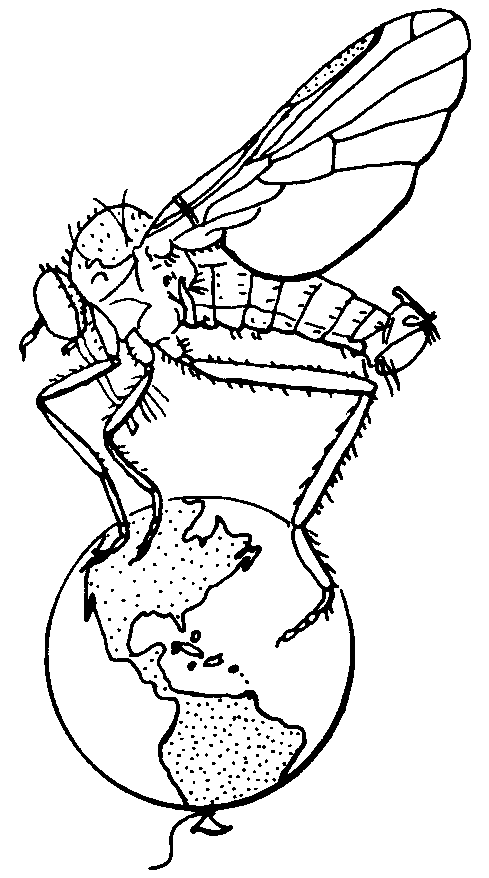


The 10th International Congress of Dipterology (ICDX) will be the latest in a continuous series of global gatherings of dipterists held every four years since 1986. After having been held in all parts of the globe, this ICD represents the first return to North America since ICD3 was held in Canada in 1994 and the first ICD in the United States.
These congresses are the only meetings on an international scale bringing together specialists across all aspects of the science of dipterology. The ICDs attract the world's leading experts in their fields, and this provides an ideal opportunity for sponsors to showcase their products and services on an international stage to this specialist audience.
The ICDX is being organized by the North American Dipterists Society, a 501(c)(3) nonprofit organization incorporated in the state of California. We use iATS Payments to securely process all of our transactions, including by credit card and direct bank transfer. Specializing in supporting nonprofit organizations, iATS Payments offers a single platform to process international, ACH and credit card payments. Please use the button above to be redirected to our secure iATS Payment portal, or, if you prefer, we can accept bank-to-bank transfers directly - please contact us for details.
If your organization is interested in being a corporate sponsor for the ICDX, please contact one of the Co-Chairs, Dr. Shaun Winterton or Dr. Stephen Gaimari, as we would be happy to discuss options.
Please see our brochure which describes our sponsorship packages, but note that we happily accept donations and sponsorships of any amount.
Why are Diptera important?
From a human perspective, certain flies are of great benefit, being used as our most important model organisms furthering our understanding of genetics and development (e.g., Drosophila), as bio-indicators for conservation programs and environmental quality assessment (e.g., chironomid midges), as pollinators second only to bees and wasps, as biological control agents against weeds and other pests, and as a primary food source for many other organisms. On the other hand, certain species could be considered a scourge to humankind as vectors of the microorganisms that cause humanity’s most devastating diseases such as malaria, dengue fever, yellow fever, West Nile fever, Zika fever, Japanese, eastern equine and other encephalitides, lymphatic filariasis, and African sleeping sickness. Their role as disease vectors makes them by far the deadliest animals to humankind, in addition to some being general nuisances biting and buzzing around people. Furthermore, flies are the most important insect group causing damage to our food supply, including feeding on fruits, leaves, stems and roots of plants that we eat, harming livestock and other animals, and spreading food-borne illnesses.
From an ecological standpoint, flies represent the greatest diversity of lifestyles of any insect order, being found in nearly all habitats on earth. A species of Diptera is the only insect and largest purely terrestrial animal native to Antarctica, and flies are one of the handful of insect orders that have entered the marine environment. Among the breadth of lifestyles represented by the order are pollinators, internal and external parasites, parasitoids, predators, saprophages, fungivores, aquatic filter feeders, leaf and stem miners, herbivores, blood feeders, disease vectors, gall-formers, dung and carrion feeders. Flies also have numerous extremophiles and groups with unique habits, such as those living in hot springs, devouring insects on top of crude oil puddles, developing in great numbers in highly saline lakes like Mono Lake, feeding below animal (including human) epidermal layers, attracting prey in cave habitats using internally-produced light, rapidly recycling animal carcasses and waste products, living in the gills of crabs, developing inside the gut of rhinos, and on the shed antlers of moose. Although many of these lifestyles can be seen within different insect orders, only Diptera display the full range, making them the ecologically most diverse order of animals.